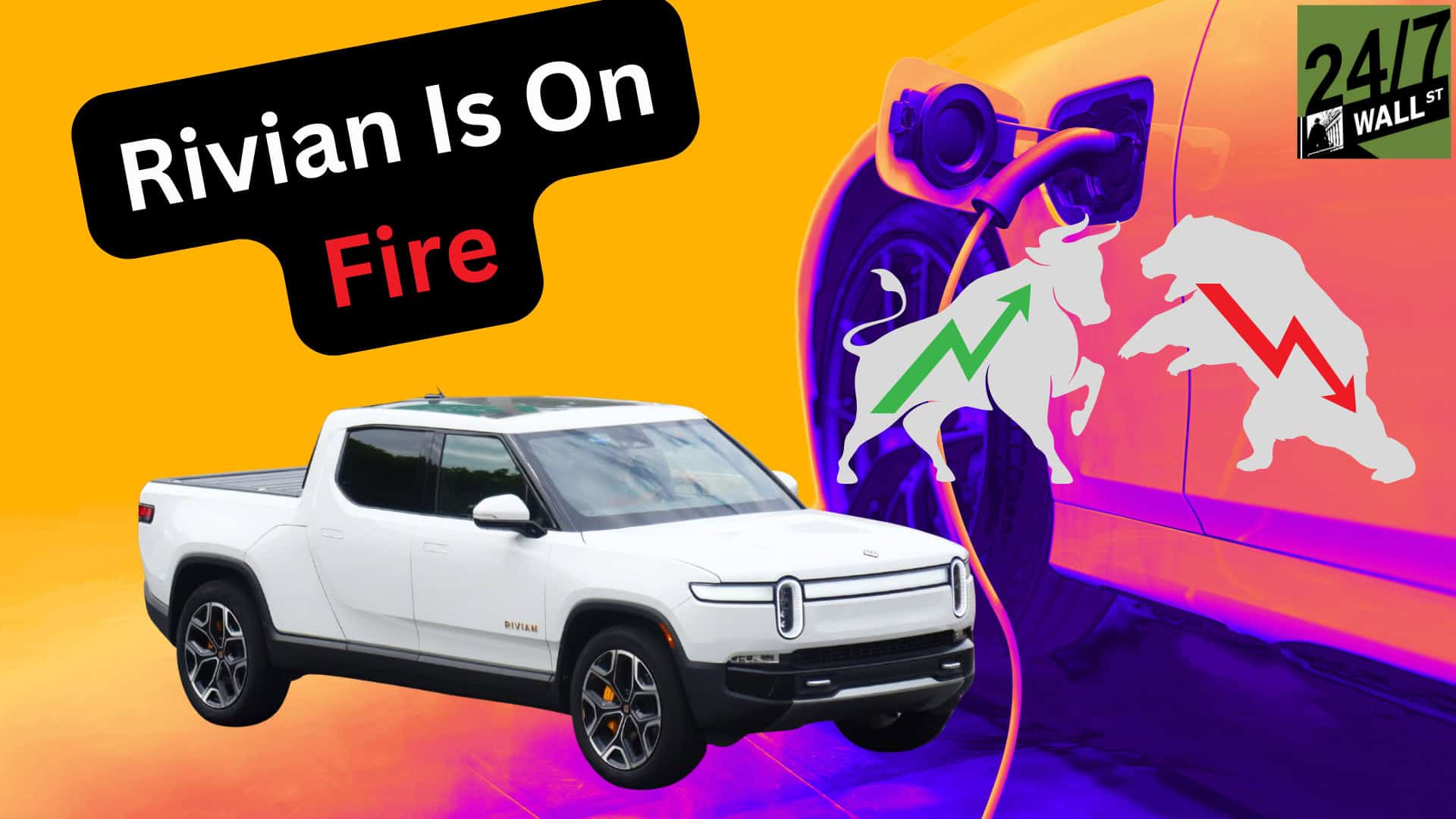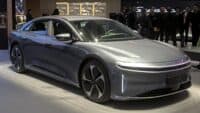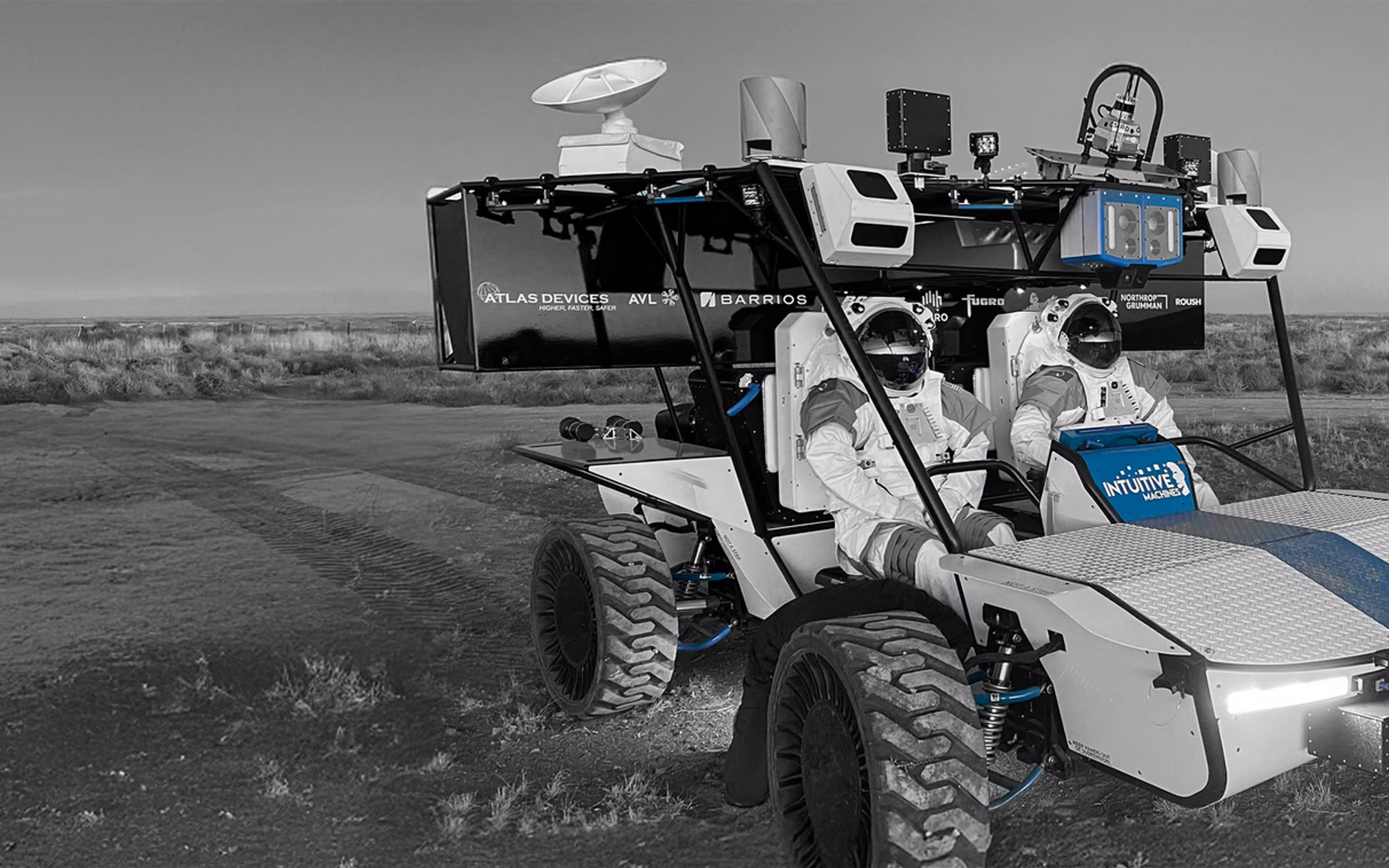
Rivian (NASDAQ: RIVN) shares have experienced significant declines, down 88% since their IPO and over 30% for the year. However, they recently saw a 40% surge after hours due to Volkswagen’s commitment to invest up to $5 billion in the company. This investment signals confidence in Rivian’s technology and future growth potential. Rivian’s recent cost-saving measures and upcoming new models are crucial for its path to profitability. While Rivian shows promise, the optimism has also affected other EV stocks like Lucid (NASDAQ: LCID), despite their different positions in the market.
Transcript:
Austin, Rivian shares have been clobbered down 88% since their IPO and down over 30% for the year.
But recently shares saw some massive relief as they popped 40% after hours.
The question is, what’s going on?
And what does this look like long term for Rivian investors?
You know, Eric, you and I have talked a lot about the troubles in the EV market, and those are being reflected in spades in Rivian, which, of course, is a pure play EV automaker.
So high growth, high volatility.
And with a lot of the changes in consumer appetites we’ve seen around EV, particularly in the last 12 months, Rivian has been in the crosshairs and their shares have been sold off.
And there’s a viability concern.
A lot of people worry that the company might not make it, might go bankrupt.
But then we saw shares pop 40% after hours on the news that Volkswagen was intending to invest up to $5 billion in the company.
They’re going to start with a billion and increase that up to 5 billion when certain milestones are met, presumably.
Now worth noting, this is just a commitment and these things don’t always materialize, but it is a great sign of faith in the company’s technology.
And remember that Volkswagen themselves made a multi-billion dollar EV ambitions and was going to pivot their whole fleet to EVs, but recently pulled back on that.
So this shows that they do still believe in the technology, but maybe that they believe in Rivian’s version and execution of it better than their own, which is interesting.
Now, if we look specifically at Rivian, the company was at one point losing up to $39,000 per vehicle, which is obviously unsustainable.
But Project Peregrine, which is a recent cost savings plan, looks to change that.
And they’ve already announced saving thousands of dollars per vehicle per year and increasing performance as well due to efficiencies like CPUs and limited wire occurrences.
The company is also announcing two new models, the R2 and the R3, technically also the R3X.
And then there’s five unnamed vehicles in the pipeline.
So this investment from Volkswagen, it does make sense.
The company at Rivian is still burning cash today, but they do have a lot of growth drivers.
And if they can continue to drive R1T and R1S sales, which are going to be more profitable and higher margin than their other vehicles, while continuing to roll out new models, they can hit escape velocity.
They are, of all of the other EV upstarts besides Tesla, they are the most likely to do it next.
But they need to scale manufacturing.
They need to hit profitability.
That will take time.
And these funds from Volkswagen will give them a bridge to do that.
It also gives Volkswagen important exposure to the EV space after they of a win-win now worth noting here is that this these news when rivian themselves were 40 uh this announcement also dragged up other ev makers like lucid and we do have to say this doesn’t make any sense in the most recent quarter review produced 14 000 vehicles and in the first quarter of 2023 They only produce 9,395.
So that’s almost 50% growth year over year with only one premium vehicle at the time.
So they actually have momentum going in the right direction.
But if you look at someone like Lucid that popped on this news in the first quarter of 2024, Lucid Group only produced 1,728 Lucid Air vehicles.
So they are still a mile away here.
So I think investors were looking at this and saying, oh, maybe investment dollars are coming back in the EV space and they can bail out some of these companies.
But when we look at the difference between a Rivian and a Lucid, Rivian is well on the path to profitability and escape velocity by increasing manufacturing and units delivered and increasing the breadth of their lineup.
Lucid is miles behind and they still only have one vehicle that is low volume and candidly overpriced given the relative performance you can get from Model S and some other Tesla vehicles out there.
So there you have Volkswagen announcing up to a $5 billion commitment to Rivian, but that seems very specific to this company and their aptitude and not necessarily a reflection that all EV makers are going to get bailed out or get incremental investments like that.
Yeah, and Austin, you know, they say history doesn’t repeat, but sure does rhyme.
And we look back to 2010 and Tesla, while it was still trying to get towards the Model S and focusing on its Roadster, got a cash injection from Daimler that helped save the company and propel it forward.
So I think investors, they’ve seen this story before and that’s fueling part of the optimism as well because past EV companies have had big injections from larger car companies and it’s led to high success.
So we all see If history repeats itself, it looks like investors are sure betting on it.
Travel Cards Are Getting Too Good To Ignore (sponsored)
Credit card companies are pulling out all the stops, with the issuers are offering insane travel rewards and perks.
We’re talking huge sign-up bonuses, points on every purchase, and benefits like lounge access, travel credits, and free hotel nights. For travelers, these rewards can add up to thousands of dollars in flights, upgrades, and luxury experiences every year.
It’s like getting paid to travel — and it’s available to qualified borrowers who know where to look.
We’ve rounded up some of the best travel credit cards on the market. Click here to see the list. Don’t miss these offers — they won’t be this good forever.
Thank you for reading! Have some feedback for us?
Contact the 24/7 Wall St. editorial team.





